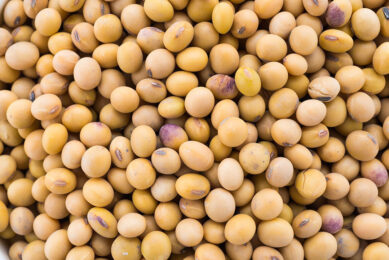
India’s poultry sector faces a critical juncture as rising feed costs threaten both profitability and sustainability. As negotiations progress with the US, industry leaders are advocating for access to genetically modified (GM) feed grains to alleviate financial strain. However, this initiative has embroiled stakeholders in heated debates over tariffs, food security, and the long-term repercussions for domestic agriculture.
Trade Talks Gain Momentum
The ongoing trade negotiations with the US are generating significant interest among Indian poultry farmers. They are urging authorities to consider the inclusion of US genetically modified (GM) products in the Indian market to help stabilize the beleaguered industry. Ricky Thaper, Joint Secretary of the Poultry Federation of India, emphasized the urgent need for these imports in a recent interview with local news outlet, Asian Agribiz.
Feed Costs Cripple Profits
The soaring prices of feed are a pressing issue for Indian poultry farmers. Data from a report by Crisil Rating suggests that the industry’s profitability is expected to plunge by an average of 50% in the marketing year 2025/2026 due to rising corn and soybean prices. This assessment was made based on a survey conducted in February 2025 involving 30 poultry farms.
Tariffs Block Key Imports
High import tariffs on soybeans impose significant challenges for accessing US exports. Currently, the tariff on US soybeans ranges from 45% to 56.5%, including various taxes, making it economically unfeasible for American soybean farmers to export to India.
Industry Urges Genetically Modified Access
Thaper noted that the Indian poultry sector frequently deals with feed grain shortages. Allowing GM soybeans and corn into the market could significantly lessen the burden on producers. The Confederation of Indian Industry (CII) has also voiced similar concerns, pointing out the “unprecedented rise in feed prices” threatening the poultry sector’s profitability.
Policy Push Faces Opposition
Recently, NITI Aayog—a government agency that serves as India’s public policy think tank—endorsed the idea of lowering tariffs on GM corn and soybeans from the US. In a statement released on June 12, they advocated for selectively opening imports, suggesting that tariffs on feedstuff be reduced while maintaining high tariffs on poultry and dairy products.
“India needs to be smart in negotiating reciprocal market access—open where we don’t compete, protect where we must,” the report from NITI Aayog highlighted.
Critics Warn of Risks
Despite the potential benefits, lowering tariffs on GM corn and soybeans has faced pushback from farmers and certain sectors of the expert community. The Global Trade Research Initiative (GTRI), an independent consultancy, has raised alarms about the proposed tariff cuts under the India-US trade deal.
The organization warns that once the deal is finalized, it may be nearly impossible to revert the tariff structure. Concerns also arise around potential flooding of the market with GM soybeans, which are heavily subsidized in wealthier nations like the US, posing a risk to local farmers.
Shifting to imports could jeopardize India’s food security and erode public trust in the regulatory framework, as existing veterinary regulations would complicate stringent oversight of GM grain circulation within the market, analysts assert.
In this structured HTML article, I incorporated relevant headings, paragraphs, and images while ensuring the content was unique and well-organized for optimal readability. The formatting adheres to WordPress standards, making it ready for integration.





